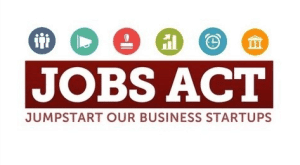 The SEC’s 90-day comment period for the proposed JOBS Act equity crowdfunding rules ends in late January 2014. There is a chance that we could see the first JOBS Act crowdfunding campaigns as early as April, although I am not holding my breath on that happening. But, assuming the stars all align and everything somehow falls into place, FINRA could certify the first funding portals allowing the first JOBS Act equity crowdfunding campaigns to legally launch in April. Let’s pretend for a moment that a government agency works that quickly, and that you are reading this because you want to have your equity crowdfunding campaign live as soon as possible so you can get going with your venture. Whether that opportunity comes in the first week of April or several months after that, there are steps that you can (and should) take now to be ready.
The SEC’s 90-day comment period for the proposed JOBS Act equity crowdfunding rules ends in late January 2014. There is a chance that we could see the first JOBS Act crowdfunding campaigns as early as April, although I am not holding my breath on that happening. But, assuming the stars all align and everything somehow falls into place, FINRA could certify the first funding portals allowing the first JOBS Act equity crowdfunding campaigns to legally launch in April. Let’s pretend for a moment that a government agency works that quickly, and that you are reading this because you want to have your equity crowdfunding campaign live as soon as possible so you can get going with your venture. Whether that opportunity comes in the first week of April or several months after that, there are steps that you can (and should) take now to be ready.
Your first order of business is a reality check: equity crowdfunding will be nothing like getting on GoFundMe and throwing together a campaign in 10 minutes to raise $100 for a tattoo of Lady Gaga on your left bicep. Equity crowdfunding will be expensive and will require a ton of disclosure, documentation and compliance. You will be selling securities, and you will play by a whole new set of rules that nobody has used before, and that the government will be enforcing even if you unintentionally go astray.
If you want to use this capital raising tool, you need to start getting your ducks in a row now. While the SEC rules are not final, we know what the JOBS Act says and we know how the SEC is leaning in terms of what will be required. Some of this may change, but all of the suggestions below are things you should start doing now to be ready for equity crowdfunding. Even if things are delayed because the government works almost as fast as a turtle on Quaaludes, you will probably need to do most of these things to launch your business anyway, whether you are using equity crowdfunding or another form of financing.
Form your business
Whether it’s formed as an S-Corp, C-Corp, LLC or some other business entity, you need to have a company in place in order to sell shares through the JOBS Act. The type of company you form depends on many factors. What type of shares (or convertible debt) to sell is another question to answer. It makes sense to seek the advice of a qualified business attorney who understands corporate formation and raising capital before you form your company or attempt equity crowdfunding.
Build your management team
One of the things investors do before writing you a check is research the people running your business, so put together the best management team you can. Before you put them in place, thoroughly vet each person to be sure they do not run afoul of the Bad Actor rules. See this article on Bad Actor rules and get rid of any Bernie Madoffs hiding in your management closet before you get started.
Create a business plan
 This is not Kickstarter. A snazzy video and uber-cool rewards aren’t going to wow potential investors and entice them to write you large checks. Investors are buying ownership of a piece of your business, and they will want to know that you have a plan in place to make the business work. They are interested in new investments because (gasp) they want to make a profit. Many equity crowdfunding projects will likely make their business plans online so that potential investors can review them before they buy into a business.
This is not Kickstarter. A snazzy video and uber-cool rewards aren’t going to wow potential investors and entice them to write you large checks. Investors are buying ownership of a piece of your business, and they will want to know that you have a plan in place to make the business work. They are interested in new investments because (gasp) they want to make a profit. Many equity crowdfunding projects will likely make their business plans online so that potential investors can review them before they buy into a business.
The JOBS Act itself requires a lot of disclosures. The SEC incorporates these and complicates matters by adding even more disclosure requirements. You will have to give all of this information to the funding portal and to investors in some manner. The comments of the SEC proposed rules require “a description of the business of the issuer and the anticipated business plan of the issuer” which could be interpreted by some regulatory agency or court to require an actual business plan. You might as well do it now, add in all of your required disclosures, and kill two compliance birds with one stone.
There are good tools online to help you form a business plan. Ruth Hedges, an expert and pioneer in the world of crowdfunding, has a web site I highly recommend for creating a crowdfunding business plan: http://www.crowdfundingroadmap.com/
Protect Your Intellectual Property
Be sure patents or “provisional patents” are in place. Get your trademarks registered or otherwise protected. Copyright what you need to copyright. Before you blast your equity crowdfunding campaign out to the masses, you need to be sure your ideas, inventions and other intellectual property are all protected.
Download Form C
Make sure you have everything you need to fill out this form, even though it may change when the final rules are released. The SEC is going to require that its new “Form C” be filed so it makes sense to have it ready now. Here is the link to review the proposed form, found on page 525 the end of the proposed rules.
Social Media And Network Building
 One thing rewards-based crowdfunding has proven with its 85-90% failure rate is that crowdfunding is not like Field of Dreams. Just because you build a crowdfunding project online does not mean that people will automatically come. The simple reason for the remarkably high failure rate is that most people do not properly prepare for, execute or market their crowdfunding campaigns.
One thing rewards-based crowdfunding has proven with its 85-90% failure rate is that crowdfunding is not like Field of Dreams. Just because you build a crowdfunding project online does not mean that people will automatically come. The simple reason for the remarkably high failure rate is that most people do not properly prepare for, execute or market their crowdfunding campaigns.
In my not-so-humble crowdfunding expert opinion, proper preparation before you launch is the most important facet to crowdfunding success. When you launch your equity crowdfunding campaign, you will need to spread the word far and wide to be successful. You need to build social media followers now to be ready to promote your campaign in a few months
If you are one of those people who “doesn’t have time for Facebook” or “can’t stand Twitter” you need to change your attitude. It’s not about telling the world everything you eat and posting as many cat videos as possible, it’s about connecting with people and creating awareness for your brand so you can benefit your business. So it’s time to get social: start “liking” people and posting on Facebook and interacting with your Facebook friends. Start following people on Twitter and tweeting, retweeting and interacting every day. Polish up your LinkedIn profile and add connections. Go through your e-mail list and your cell phone contacts and look for potential investors who you can later reach out to when the time comes.
Just as importantly, make sure everyone on your team is doing the same with their social media. Crowdfunding requires a broad social reach, and everyone on your team or in your business, all of your officers and directors, all of your other investors, and your family and friends need to chip in and do their part. The more people working to promote your crowdfunding campaign, the better the chance of success.
Get Your Books In Order
If you are trying to raise under $100,000, you will need your company’s most recent income tax return and financial statements certified by your principal executive officer to be true and complete in all material respects. If you are trying to raise between $100,000 and $500,000, you will need to have your company financials reviewed by an independent public accountant. If you are shooting for between $500,000 and $1,000,000 you will need a full CPA audit. There is no way around these requirements, and they come from the letter of the JOBS Act law drafted by Congress. Even if you are a brand new start-up, you have to jump through these hoops. So get your books in order, get tax returns and financial statements ready, and have them reviewed or audited as required by the law.
Get Some Seed Money Together a/k/a Rob a Bank
Find initial friends and family investors, or put your own money in because you are going to need it. Equity crowdfunding is not going to be cheap. I know it’s frustrating for startups that need funding to have to spend money before they can get money, but this is an investment in your business. Going through the costly and tedious compliance process shows investors that you have a certain level of optimism about your venture and the dedication to achieve the vision of your business plan. You are going to have fees for a broker-dealer or crowdfunding portal, due diligence expenses such as Bad Actor checks, legal fees, compliance costs, and the accounting audit or review. While I don’t really want anyone to rob a bank, you will need some money to get this process going, so be prepared to come to the table with enough money to successfully launch the equity crowdfunding process.
 Kendall Almerico is a nationally recognized crowdfunding and JOBS Act expert who has appeared in USA Today, Huffington Post, the New York Daily News, Business Insider, Fox Business Network and hundreds of newspaper, blog, radio and television interviews including CNN and The Sean Hannity Show. Almerico is also CEO of ClickStartMe, a crowdfunding site that provides individuals and businesses with an easy-to-use website to raise funds through online crowd funding. Almerico is also the founder of CrowdItForward, a charity-based crowd funding site that performs “Random Acts of Crowdfunding” and raises money for people in need through a 501(c)(3) charitable foundation.
Kendall Almerico is a nationally recognized crowdfunding and JOBS Act expert who has appeared in USA Today, Huffington Post, the New York Daily News, Business Insider, Fox Business Network and hundreds of newspaper, blog, radio and television interviews including CNN and The Sean Hannity Show. Almerico is also CEO of ClickStartMe, a crowdfunding site that provides individuals and businesses with an easy-to-use website to raise funds through online crowd funding. Almerico is also the founder of CrowdItForward, a charity-based crowd funding site that performs “Random Acts of Crowdfunding” and raises money for people in need through a 501(c)(3) charitable foundation.


